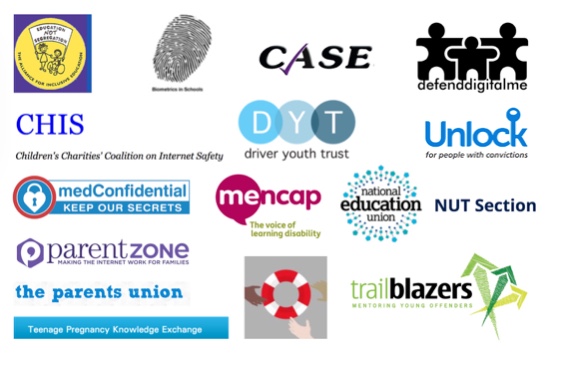New Year. New Minister. New Supporters. Campaign for children’s privacy in Education #LabelsLastaLifetime
Alternative Provision National Pupil Database policy / January 12, 2018
One month ago we wrote to the Secretary of State for Education Justine Greening. Today we have written to her successor the Rt Hon Damien Hinds, calling again on the Department to pause the Alternative Provision (AP) census expansion and:
- make children’s personal data safe
- respect children’s confidentiality
- tell children and parents how the Department uses personal data, its retention and re-use by third parties.
Children will be labelled for life by Local Education Authorities in the next AP census, when national submissions start on January 18, 2018. One of eight new reasons for transfer — including pregnancy, mental health and young offender — will be added to the record of each child who moved out from mainstream education into Alternative Provision in the last year.
Special educational needs and disability (SEND) types data have also been expanded, to include more detailed sensitive health codes such as autism and learning difficulties.
While the information are already used at local level for care, these labels are new and will be collected for the first time on a named basis at national level, not for the child’s support or direct care, but secondary re-use.
When will children and parents be told?
Our research so far with the 152 Local Education Authorities in England, shows no one has told parents and children about this new confidential data collection, or that these new, highly sensitive data will be added to a growing national register of 23 million records, the National Pupil Database.
From there, these identifying data are onwardly shared with a wide range of third parties.
We asked the Department in September to reconsider its plans. We have made nine recommendations from our work over the last 3 years with the Department. Child rights need to be respected and confidence restored in school census collections.
It is vital that children’s confidentiality is put ahead of commercial interests in the best interests of the child’s care, to protect them from potential harm, stigma, and barriers to their flourishing to reach their full potential. The Department must also protect the social license for public interest research, which is based on public trust and expectations of fairness. Better digital understanding will help create clarity and consistency in use of edTech in the classroom too.
With the support of representatives from over 20 NGOs and advocates of child rights, including the Royal Mencap Society, the Driver Youth Trust, the Teenage Pregnancy Knowledge Exchange, and Unlock, recommendations include:
- a change of policy on the indefinite retention and distribution of ‘exclusions’ (for disciplinary reasons such as violence, theft, alcohol etc) at very least in line with the Rehabilitation of Offenders’ Act 1974
- a change of approach to the distribution of SEND to ensure use of all disability data respects the right to confidentiality, a need recognised in SEND guidance
- Subject Access requests should be met, to show people what data are held in their national record, how their data are used and enable corrections.
First the plans need to be paused.
A pause would give the Local Education Authorities time to tell pupils and parents what is going to happen and give the Department the chance to put appropriate safeguards in place to make the data safe.
We appreciate and support the important need to understand SEND and reasons behind pupil AP transfers, in particular concerns about children “managed out” from mainstream school to boost league table results.
However, the way it is done should not cost any child their confidentiality. The use of these data, often profiling children over their lifetime, will potentially discriminate against them when data are used across government, when used for direct interventions, and by external third parties, including the police. Because as John Carr, Secretary of the Children’s Charities’ Coalition on Internet Safety (CHIS) said, “Once a mistake, even an honest one, gets into a digital record it can haunt you for life.”
There are better privacy preserving methods of collecting knowledge and statistics, than named lists. There are better safe infrastructures of distributed data access, than unsafe data distribution.
We hope that the new Minister will agree, and that we will soon see his modern vision embodied in a safe, fair and transparent approach to data, fit for the future.
Take action here. #LabelsLastaLifetime
